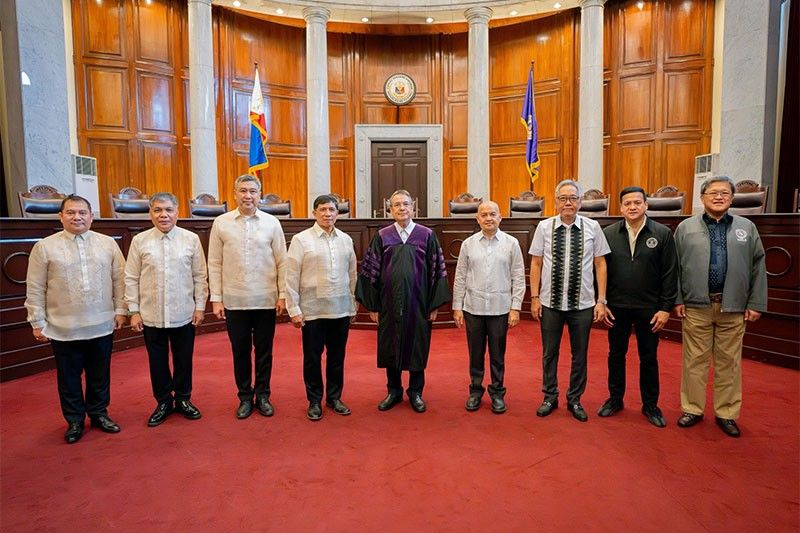
Upgrade to High-Speed Internet for only ₱1499/month!
Enjoy up to 100 Mbps fiber broadband, perfect for browsing, streaming, and gaming.
Visit Suniway.ph to learn
Former Philippine senator and human rights campaigner Leila de Lima talks during an interview with AFP in Manila on Nov. 24, 2023.
AFP / Jam Sta Rosa
MANILA, Philippines — The Supreme Court is not the one that will compel Congress to pass an anti-political dynasty law, but the Constitution, former senator Leila De Lima said.
De Lima, a former Justice Secretary, made this statement in response to Senate President Francis Escudero’s remarks on the petition asking the high court to compel Congress to pass an anti-political dynasty law.
The former justice chief said the Constitution is also the “supreme law of the Congress” that tells them what to do, which includes “to pass a law prohibiting political dynasties.”
“According to the Constitution, Congress should have already passed an anti-dynasty bill almost 40 years after,” De Lima said.
“This is not purely a political question. It's a constitutional issue of paramount importance. Is the SP (senate president) saying that Congress is above the Constitution?” she added.
On April 3, Escudero said that the Supreme Court cannot compel Congress to pass a law prohibiting political dynasties, saying it is a “political question.” He was responding to the petition for mandamus filed by the 1Sambayan Coalition and some members of the clergy, asking the high court to order Congress to pass legislation against political dynasties..
The petition. According to the petitioners, Congress has grossly neglected its constitutional duty by repeatedly failing to pass an anti-dynasty law, nearly forty years after the 1987 Constitution was enacted.
Citing a 2022 study, the petitioners pointed out that this neglect is highlighted by the fact that political families now hold 80% of the seats in Congress.
“By simply refusing to enact an anti-dynasty law, Congress has not only violated, but has effectively repealed Article II, Section 26 of the 1987 Constitution,” the petition read.
“Until and unless the Honorable Court intervenes to direct Congress to enact an anti-dynasty law, Article II, Section 26 of the 1987 Constitution is all but dead and useless,” it added.
Article II, Section 26 of the Constitution mandates the state to “guarantee equal access to opportunities for public service and prohibit political dynasties as may be defined by law.”
However, according to Supreme Court decisions, this provision is non-self-executing, meaning that Congress must pass a law to enable its implementation.

 2 months ago
29
2 months ago
29



